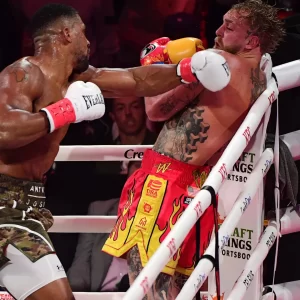Lilith Fair: Building a Mystery – The Untold Story Revisits the Festival That Changed Music

On September 21, a new documentary titled Lilith Fair: Building a Mystery – The Untold Story will premiere, shining a long-overdue spotlight on one of the most transformative moments in music history. The film revisits Lilith Fair, the groundbreaking all-female music festival founded in the 1990s by Canadian singer-songwriter Sarah McLachlan, and explores its journey from a risky idea dismissed by skeptics to a cultural milestone that reshaped the industry’s view of women in music.
The Birth of Lilith Fair
In 1996, Sarah McLachlan was frustrated with the lack of opportunities for women artists to share stages together. At the time, a widespread industry belief held that female artists could not draw audiences when paired on the same bill. McLachlan defied that notion by staging a short tour with other female performers, including Paula Cole and Lisa Loeb. The experiment was a success, paving the way for the creation of Lilith Fair the following year.
Launched in 1997, Lilith Fair toured across North America, featuring an all-female lineup that included some of the biggest names of the era alongside emerging talents. Artists like Sheryl Crow, Jewel, Fiona Apple, Tracy Chapman, Bonnie Raitt, and Erykah Badu shared the stage, proving that audiences not only welcomed but celebrated female-led shows.
A Cultural Phenomenon
Lilith Fair was more than a concert series; it was a movement. Over three summers between 1997 and 1999, the festival attracted nearly two million attendees and grossed more than $50 million, making it one of the most successful touring festivals of its time.
The event’s impact was felt far beyond ticket sales. For many young women in the audience, Lilith Fair was the first time they saw female artists not just opening for male headliners but commanding main stages with authority and confidence. It challenged stereotypes, provided a platform for diverse voices, and brought feminist values into mainstream music culture.
The documentary highlights how the festival became a flashpoint for conversations about gender equity in the music industry, inspiring a generation of fans and future performers.
Controversy and Challenges
While Lilith Fair was groundbreaking, it was not without obstacles. Industry insiders were initially dismissive, some going so far as to predict failure. In addition to skepticism, the festival also faced backlash from critics who claimed the event was too focused on gender.
The new film doesn’t shy away from these controversies. It includes discussion of the bomb threats the festival received, underscoring the hostility that sometimes accompanied its bold statement. McLachlan and other participants reflect on the emotional weight of those moments, as well as the resilience it took to keep the festival alive.
The Documentary’s Storytelling
Directed with a mix of reverence and critical insight, Lilith Fair: Building a Mystery – The Untold Story weaves together archival footage, candid interviews, and behind-the-scenes stories. Viewers see rare concert clips of Jewel belting out her early hits, Sheryl Crow captivating audiences with her guitar-driven anthems, and Erykah Badu introducing neo-soul to massive crowds.
Equally powerful are the interviews with artists who participated. Bonnie Raitt recalls the camaraderie of sharing the stage with younger performers, while McLachlan reflects on the exhaustion and joy of carrying the festival forward. The film balances nostalgia with analysis, asking what made Lilith Fair work—and why its influence remains relevant.
Bridging Generations
One of the documentary’s most striking elements is the inclusion of commentary from today’s stars, including Olivia Rodrigo. For Rodrigo, who was born after the festival’s original run, Lilith Fair represents a blueprint for artistic freedom. “Seeing those women come together showed us what’s possible,” she says in the film. Her reflections highlight the festival’s lasting legacy: inspiring artists who never personally experienced it but feel its influence in today’s more inclusive music landscape.
Other younger performers also appear, connecting their experiences to the paths paved by Lilith Fair. They credit the festival with normalizing all-female lineups and broadening definitions of who belongs on a main stage.
A Timely Reminder
In 2025, the themes of Lilith Fair remain strikingly relevant. Conversations about representation, equity, and inclusivity in the music industry continue, from Grammy nominations to festival bookings. While progress has been made, many challenges persist—especially for women of color and LGBTQ+ artists seeking equal visibility.
By revisiting Lilith Fair, the documentary offers both a celebration and a challenge. It asks viewers to remember the power of collective action and to consider how those lessons might be applied today.
Emotional Resonance
Fans who attended Lilith Fair during its original run will likely find the documentary deeply emotional. For them, the festival was not just about music but about belonging. Many recall the sense of unity created when thousands of people came together to hear voices that often struggled for space on mainstream radio.
The film captures that spirit of solidarity, reminding viewers that Lilith Fair was not simply about showcasing talent—it was about redefining what was possible for women in the music industry.
The Lasting Legacy
Though Lilith Fair ended after three summers, its influence has echoed for decades. Festivals like Bonnaroo, Coachella, and even more recent all-female tours owe part of their DNA to the doors Lilith opened. The event demonstrated that audiences were hungry for diverse voices and that commercial success could align with cultural change.
Sarah McLachlan, reflecting in the film, says: “Lilith Fair wasn’t perfect, but it proved something powerful—that women could lead, draw crowds, and change the conversation. That’s a legacy I’m proud of.”
Conclusion
Lilith Fair: Building a Mystery – The Untold Story is not just a documentary about concerts; it is a reminder of a cultural turning point. Through archival footage, candid interviews, and the perspectives of both past and present artists, it tells the story of how one woman’s vision became a collective triumph.
As Olivia Rodrigo and others testify, the spirit of Lilith Fair lives on in today’s music scene. The documentary’s release on September 21 is both a look back at a revolutionary chapter and an invitation to imagine what comes next.
Back when music festivals were dominated by male lineups, Lilith Fair dared to be different—and in doing so, it changed music forever.





